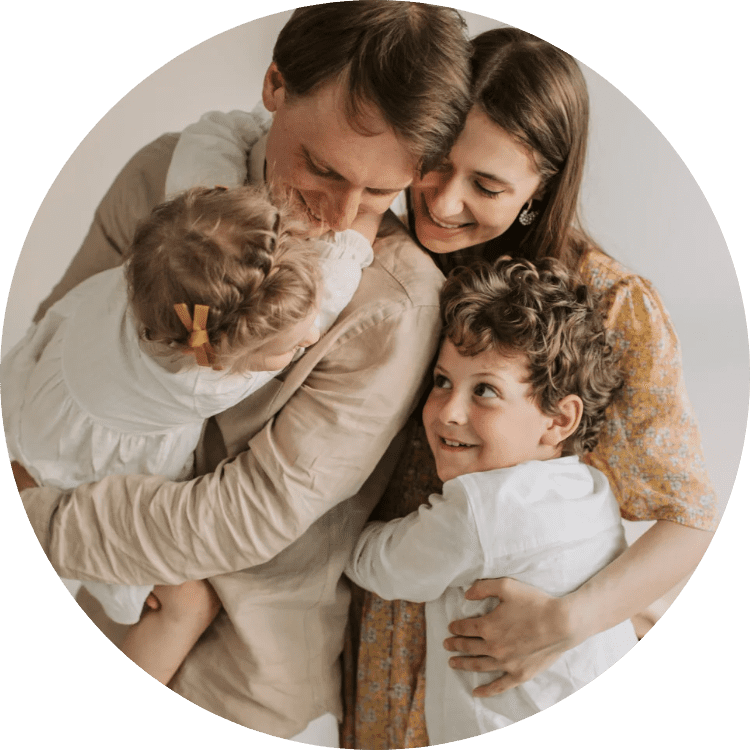Therapeutic Tools for Counselors and Educators: Improve Auditory Processing
The Integrated Listening System (ILS) works to improve the functional aspects of learning, such as attention, memory, processing and emotional balance.
Once these skills are in place, changes occur at a personal and a group level: the individual student becomes a successful learner, and the classroom becomes a better environment for learning.
“As a therapist, there are so many times we think if we had one more way to target different centers of the brain and turn them all on at the same time so they could access all of those great skills that they do have…and then [the ILS] came around, and we thought ‘Oh my goodness. This is what we’ve been looking for.’” Jill Sengbush, MA/CCC-SLP
The Benefit
The ILS has a global effect on the brain and central nervous system. As a result, it is successfully integrated into a wide variety of programs addressing the needs of children with:
- Performance Optimization: the ILS is used by students, athletes and professionals of all ages to achieve better attention, mental acuity and motor coordination.
- Learning Difficulties: the ILS is customizable for each individual; read more about how the program influences learning, reading, attention and emotional regulation, speech, auditory processing and sensory processing.
- Developmental Challenges: the ILS is a complementary approach which is often used with other methods and programs to help those on the autism spectrum.
Feedback
“Towards the end of the year we had no issues in the classroom… we had a student teacher who came in and she could not figure out who the students were who had an IEP.”
Ashley Daigler, Special Ed Teacher
“Results range from increased confidence and coordination, to improved social skills, and very distinct improvements in reading and overall academic skills.”
KS, Educator
“Amazing results. One of my students, who wouldn’t sit to complete tabletop coloring activities that we worked on for a school year had [the ILS] over the summer. For the first time ever she sat, looked at the paper and colored within the circle. The rest of the fall term I had equally positive sessions with writing letters, numbers and playing intricate fine motor games with her looking at the presented material, following directions and task completion! [The ILS] made a huge impact in this girl’s life!”
Anne Zaherk Murray, Educator
Research
Third party researchers are conducting studies on the effectiveness of the program in clinics and school on an ongoing basis. Areas of research include reading, auditory processing, autism, behavior, sleep, attention, sensory processing and at-risk populations. All research and case studies may be found on our Research page.
“We see consistently excellent results with the Integrated Listening System with regard to attention and learning problems. And the fact that the Integrated Listening System is not only effective but is fun makes it extremely appealing.”
Edward Hallowell, MD, Harvard Medical School Faculty child and adult psychiatrist, author of “Delivered from Distraction” and other books on ADHD
Integrated Listening System School Program Data
Data were compiled from 78 Students in nine schools (public, charter and private) using the ILS Program during the 2014/2015 school year. Students were a mix of those with learning difficulties and with autism. View the results here.
Kingsway Elementary School completed a small, controlled study using the ILS in their school with 10 students on the autism spectrum. They measured results using the ILS Measure of Foundational Abilities (MFA) as well as the SCAN:3-C measure of auditory processing. SCAN:3-C results are below, and the video to the right is of teachers discussing the program results. Click here to see the full report.
How is the Integrated Listening System Implemented?
The ILS can be combined with OT in a school setting very effectively. School personnel can be trained to conduct ILS sessions in the absence of the OT so that the frequency required for improvement may occur. For specifics on school implementation please see the Educator page or contact Unyte-iLs.
The ILS is a fun activity, or exercise, usually done in the classroom. A waistpack is worn by each student, carrying an iPod loaded with ILS treated music and an amplifier.
- ILS’ special air and bone conduction headphones are connected to the iPod through the Amplifier to power the bone conduction.
- Movement games which require visual, auditory and balance systems to work together are performed while listening to the music.
- Quiet activities, such as drawing, puzzles, Legos, etc. can also be done while listening for portions of the session.
- Each unit can be customized for individual needs (e.g. learning difficulties, autism).
- Program sessions are flexible and may be customized per school schedules; typical programs are 15-30 minutes in length, 2-3 times per week.
- Sessions may be completed in small groups, one-on-one, pullout, PE, art or in the classroom.
- Sessions may be overseen by Teachers, Therapists, Parent volunteers, Para-professionals, and others trained in the ILS.
How the Integrated Listening System Works
The ILS is based on the fact that we can change our brain – we can essentially re-wire it through specific and repeated stimulation, a concept known as neuroplasticity. The ILS trains for brain/body integration through a staged approach, starting with the fundamentals of sensory integration and then extending through more complex cognitive functions, including language, self-expression and social skills.





 © 2026 Unyte Health US Inc.
© 2026 Unyte Health US Inc.